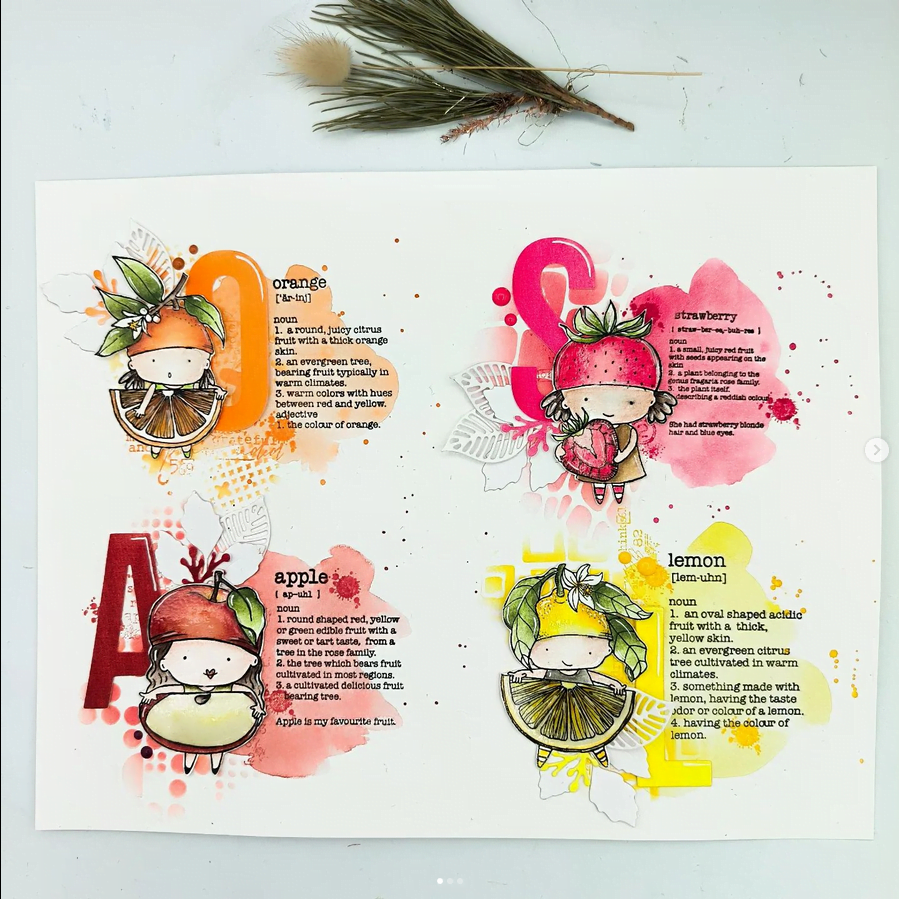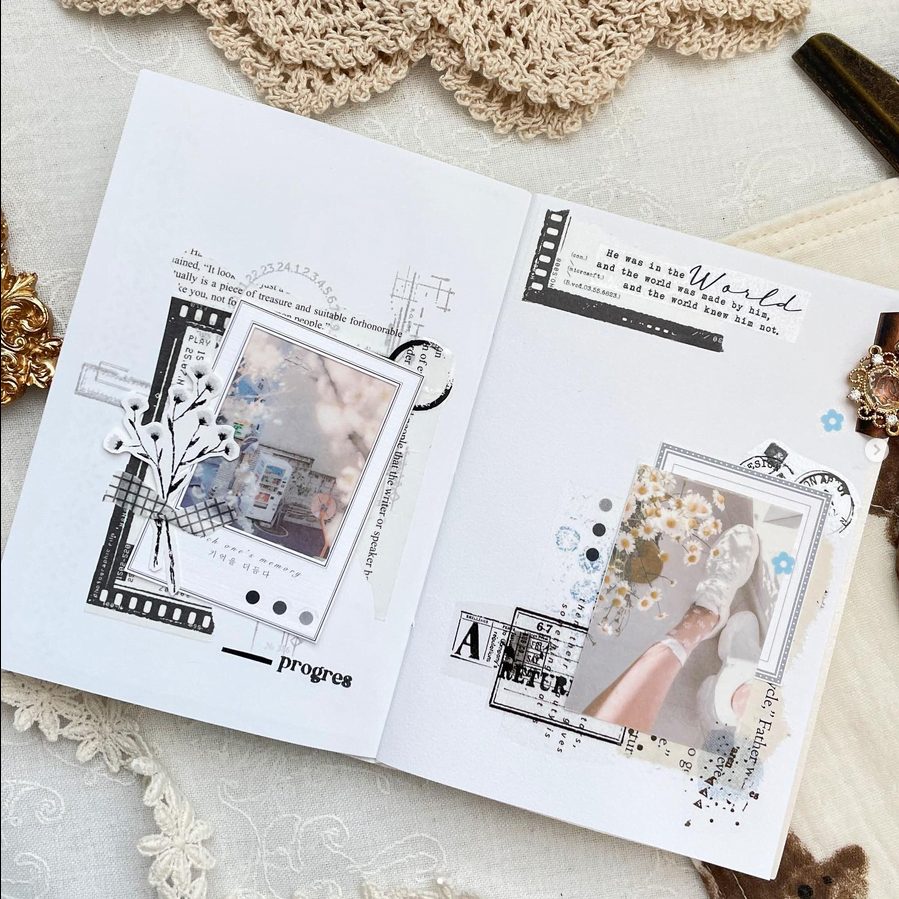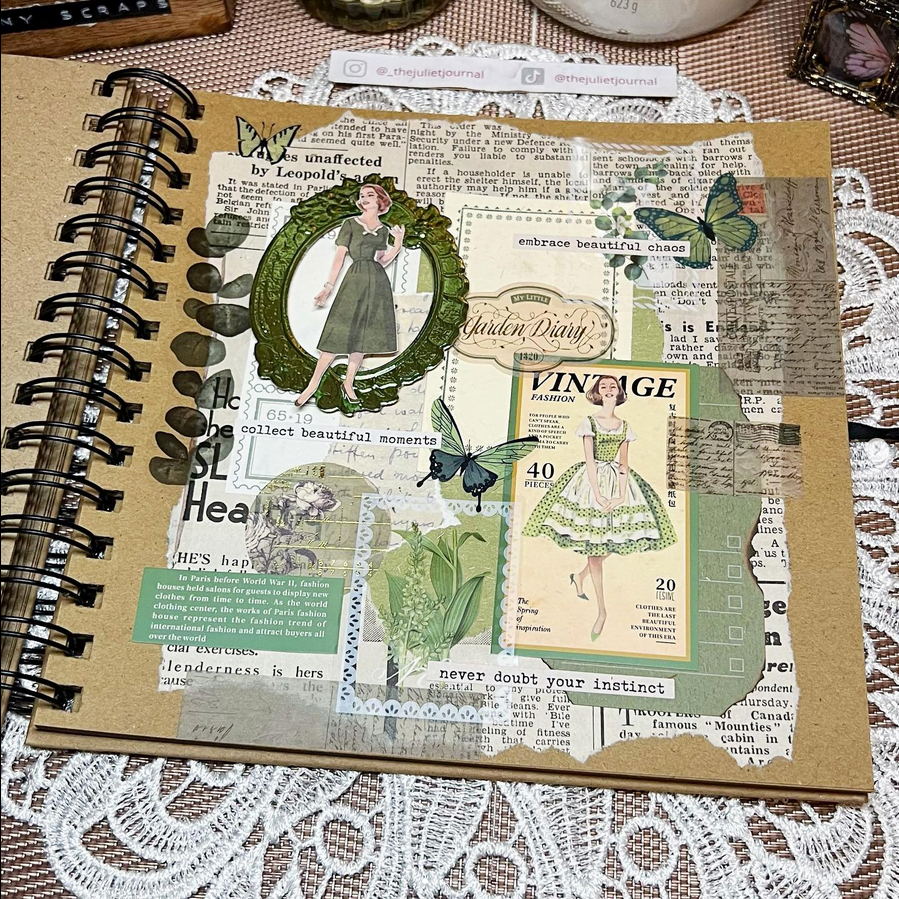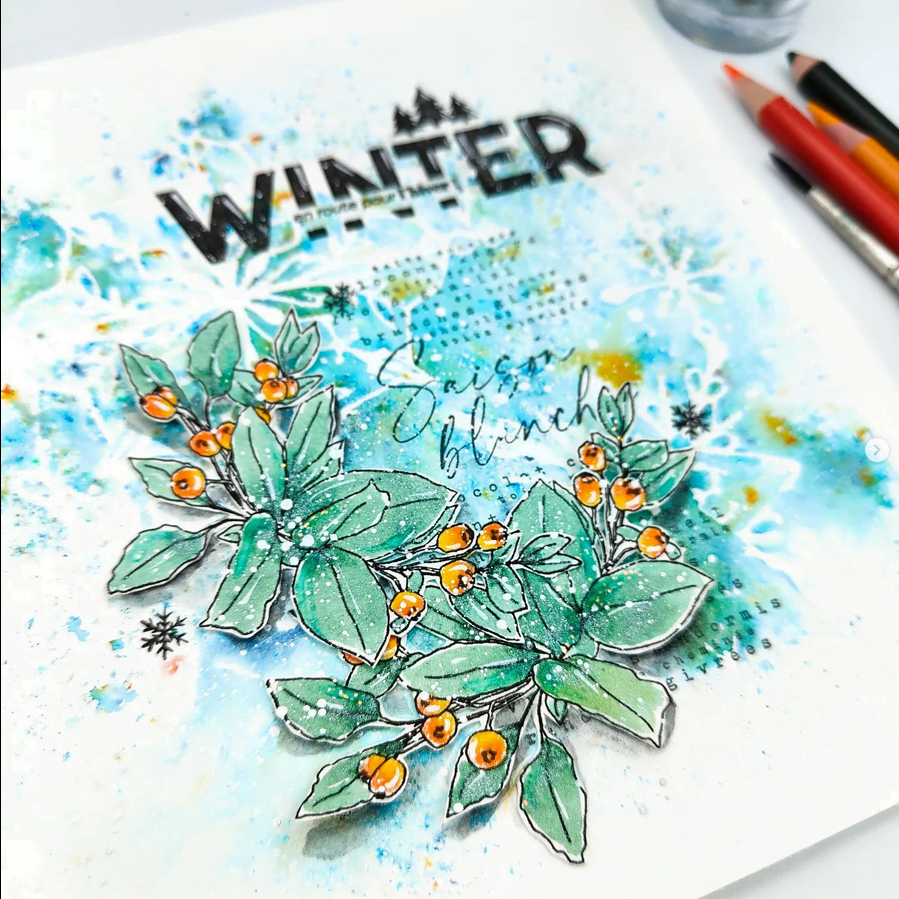Found Poetry in Scrapbooks is a unique way of art journaling. This captivating form of artistic expression allows us to breathe new life into existing texts, crafting unique and thought-provoking compositions. Found poetry invites us to start a poetic journey, exploring the beauty and power of language in unexpected ways. In this blog post, we will visit the world of found poetry, its origins, techniques, and how it can be seamlessly incorporated into your journaling, scrapbooking, and diary projects.
Table of Contents

Understanding Found Poetry
Found poetry is a poetic form that involves repurposing existing texts, words, and phrases to create new and meaningful compositions. It celebrates the beauty and versatility of language by recontextualizing found words, allowing them to take on new poetic significance. This form of poetry emerged as a response to the notion that poetry can be found everywhere, waiting to be discovered within the fabric of everyday life.

Origins of Found Poetry
Found poetry traces its roots back to the early 20th century with the emergence of literary movements such as Dadaism and Surrealism. Influential poets like Tristan Tzara and André Breton experimented with the concept of found language, incorporating chance, randomness, and the absurd into their poetic works. This approach challenged conventional notions of poetry, opening the door for the exploration of new creative possibilities.
Techniques and Approaches of Found Poetry in Journaling
Remixing and Rearrangin
Found poetry often involves remixing and rearranging words, phrases, and sentences from existing texts. By carefully selecting and rearranging these fragments, new poetic meanings and interpretations can emerge.
Erasure and Redaction
Another technique involves erasure or redaction, where specific words or phrases are removed from an existing text, leaving behind only the essential elements that form a poetic composition. This process invites readers to fill in the gaps and engage in an active dialogue with the poem.
Cut-Up Method
The cut-up method involves physically cutting up words or phrases from different texts and reassembling them to create new compositions. This approach allows for unexpected connections and juxtapositions, leading to fresh and surprising poetic insights.

11 Ideas how to Incorporate Found Poetry into Scrapbooks
Found poetry offers a wealth of possibilities when it comes to incorporating it into your art journal, scrapbooking, and diary projects. Here are some practical tips to inspire your creative exploration:
1. Magazine Clippings
Cut out words or phrases from magazines to create a collage of found poetry on your scrapbook pages.
2. Book Pages
Use old book pages to find interesting words or phrases that relate to the theme of your scrapbook. Glue them onto your pages in a visually appealing arrangement.
3. Newspaper Headlines
Incorporate impactful headlines or phrases from newspapers to add a current and relevant touch to your scrapbook.
4. Song Lyrics
Include snippets of song lyrics that resonate with the memories or emotions you want to capture in your scrapbook.
5. Letters and Notes
If you have handwritten letters or notes, pick out meaningful phrases and integrate them into your scrapbook layout.
6. Receipts and Tickets
Explore receipts, tickets, or other memorabilia for interesting text. These can add a touch of authenticity to your pages.
7. Poetry Books
Cut out lines from poetry books that align with the emotions or themes of your scrapbook.
8. Greeting Cards
Repurpose sentiments from greeting cards to convey heartfelt messages or capture a specific moment.
9. Labels and Packaging
Look for interesting text on labels or packaging materials that can complement the visual elements of your scrapbook.

10. Typography Stamps
Use stamps with interesting fonts and phrases to create your own found poetry on the pages.
11. Maps and Travel Documents
Extract words and phrases from maps, travel brochures, or documents to enhance pages dedicated to travel memories.
12. Quotes from Interviews
If you have recorded interviews or conversations, extract quotes that capture the essence of the moment and incorporate them into your scrapbook.
13. Mixed Media Collage
Combine found poetry with other mixed media elements like paint, markers, or ephemera for a dynamic and textured look.
14. Nature and Magazine Photos
Create poetry by arranging and layering words on top of photographs or around the edges to complement the visual elements.
15.Themed Word Clouds
Generate word clouds using online tools with words relevant to the theme of your scrapbook and include them as a background or focal point.
Conclusion Found Poetry in Scrapbooks
Found poetry offers a world of creative expression within your journaling, scrapbooking, and diary projects. It celebrates the art of repurposing language, breathing new life into existing texts. Embrace the possibilities, experiment with techniques, and let your creative spirit soar as you uncover the hidden poetic gems within the pages of found words and phrases. With found poetry, your art journal, scrapbooking, and diary projects will become vibrant and evocative expressions of your unique voice. Find even more unique ways of (art) journaling and journaling techniques in our dedicated blog post.
Editorial Note: Morella&Ulalume Editors may earn a commission on sales made from partner links on this page, but that doesn’t affect our editors’ opinions or evaluations.
Furthermore the content of this article is for informational purposes only and should not be considered as medical advice. Prior to making any health-related decisions, including the use of supplements or dealing with decisions that can affect your mental health, it is advisable to consult with a qualified healthcare provider.